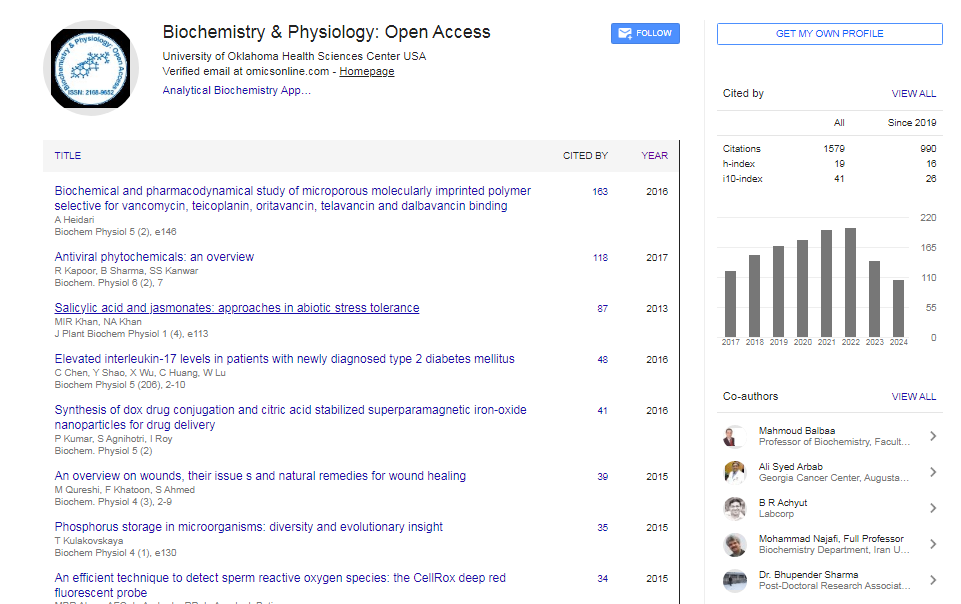Research Article
Proteolytic Inhibition in Regulating the Insulin-Like Growth Factor-Binding Proteins in Prostate Cancer
| Catherine F. Yang1*, Rob Zakreski2, Weixing Li1, Xiaoyang Mou1, Nikita Iltchenko1 and Barry S. Cooperman3 | |
| 1Department of Chemistry and Biochemistry, Rowan University, Glassboro, New Jersey | |
| 2Glaxo Smith Kline, Inc., 1250 South Collegeville, Collegeville, PA 19426 | |
| 3Department of Chemistry, University of Pennsylvania, Philadelphia, Pennsylvania 19104-6323, USA | |
| *Corresponding Author : | Dr. Catherine F. Yang Department of Chemistry and Biochemistry Rowan University, Glassboro, NJ 08028, USA Tel: (856)256-5455(O) Fax: (856)256-4478 E-mail: yang@rowan.edu |
| Received July 03, 2012; Accepted July 13, 2012; Published July 15, 2012 | |
| Citation: Yang CF, Zakreski R, Li W, Mou X, Iltchenko N, et al. (2012) Proteolytic Inhibition in Regulating the Insulin-Like Growth Factor-Binding Proteins in Prostate Cancer. Biochem Physiol 1:102. doi:10.4172/2168-9652.1000102 | |
| Copyright: © 2012 Yang CF, et al. This is an open-access article distributed under the terms of the Creative Commons Attribution License, which permits unrestricted use, distribution, and reproduction in any medium, provided the original author and source are credited. | |
Abstract
Prostate-Specific Antigen (PSA), a serine protease, is believed to regulate the actions of extracellular matrix proteins such as fibronectin and Insulin-like Growth Factor-Binding Proteins (IGFBPs), possible factors involved in tumor progression and metastasis. Two phosphonate ester derivatives Cbz-(4-AmPhGly)p(OPh)2 (Inh I) and Cbz- (4-AmPhe)p(OPh)2 (Inh II), first mechanism-based inhibitors for PSA were synthesized using Oleksyszyn oxidation reaction, and their inhibitory activities on cleaving fibronectin (both human and bovine) and IGFBPs were investigated. To elucidate the role of PSA in the development and progression of prostate cancer, the regulation of the PSA activity on these two physiological substrates was clearly illustrated by modulating the concentrations of inhibitors, i.e. cleavages of both fibronectin and IGFBPs by PSA are inhibited by structure specific designed diphenyl phosphonate esters, consistent with the putative degradation. The inhibition data of two synthetic phosphonate ester derivatives, as lead compounds, will facilitate the development of more specific inhibitors of PSA activity, likely to modulate the physiological control of the IGF in human prostatic cell growth.

 Spanish
Spanish  Chinese
Chinese  Russian
Russian  German
German  French
French  Japanese
Japanese  Portuguese
Portuguese  Hindi
Hindi 